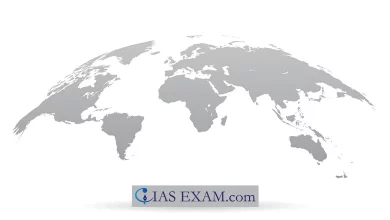Significance of the New Amendments to IT Rules

[GS Paper 3 – Science and Technology, Developments in IT Field]
Context – The Ministry of Electronics and IT (MeitY) has notified amendments to the Information Technology (Intermediary Guidelines and Digital Media Ethics Code) Rules, 2021 (IT Rules, 2021) on October 28. In June 2022, MeitY had put out a draft of the amendments and solicited feedback from the relevant stakeholders.
The draft generated considerable discussion and comment on the regulation of social media in India.
About IT Rules 2021
- Regulating SMI’s: World over, governments are grappling with the issue of regulating social media intermediaries (SMIs).
- Addressing the issues of SMI controlling the free speech: Given the multitudinous nature of the problem the centrality of SMIs in shaping public discourse, the impact of their governance on the right to freedom of speech and expression, the magnitude of information they host and the constant technological innovations that impact their governance it is important for governments to update their regulatory framework to face emergent challenges.
- Placing obligations on SMI: In a bid to keep up with these issues, India in 2021, replaced its decade old regulations on SMIs with the IT Rules, 2021 that were primarily aimed at placing obligations on SMIs to ensure an open, safe and trusted internet.
Proposed Amendments
The stated objectives of the proposed amendments were three fold:
- Protecting the constitutional rights: there was a need to ensure that the interests and constitutional rights of netizens are not being contravened by big tech platforms,
- Grievance redressal: to strengthen the grievance redressal framework in the Rules,
- To avoid the dominance: that compliance with these should not impact early-stage Indian start-ups.
This translated into a set of proposed amendments that can be broadly classified into two categories:
- Additional obligation on SMI: The first category involved placing additional obligations on the SMIs to ensure better protection of user interests.
- Appellate mechanism: The second category involved the institution of an appellate mechanism for grievance redressal.
Additional Obligations placed on Social Media Intermediaries
- Users need to comply with rules of platforms(intermediaries): The original IT Rules, 2021 obligated the SMIs to merely inform its users of the “rules and regulations, privacy policy and user agreement” that governed its platforms along with the categories of content that users are prohibited from hosting, displaying, sharing etc. on the platform. This obligation on the SMIs has now been extended to ensuring that its users are in compliance with the relevant rules of the platform.
- Prevent the prohibited content: Further, SMIs are required to “make reasonable” efforts to prevent prohibited content being hosted on its platform by the users.
- SMIs have to respect rights under constitution: Second, a similar concern arises with the other newly introduced obligation on SMIs to “respect all the rights accorded to the citizens under the Constitution, including in the articles 14, 19 and 21”. Given the importance of SMIs in public discourse and the implications of their actions on the fundamental rights of citizens, the horizontal application of fundamental rights is laudable.
- Remove the content within 72 hours: SMIs are now obligated to remove information or a communication link in relation to the six prohibited categories of content as and when a complaint arises. They have to remove such information within 72 hours of the complaint being made. Given the virality with which content spreads, this is an important step to contain the spread of the content.
- Ensuring the accessibility of services: SMIs have been obligated to “take all reasonable measures to ensure accessibility of its services to users along with reasonable expectation of due diligence, privacy and transparency”.
- Provide content in all scheduled languages: In this context, the amendments also mandate that “rules and regulations, privacy policy and user agreement” of the platform should be made available in all languages listed in the eighth schedule of the Constitution.
Grievance Appellate Commission (GAC)
- Composition of GAC: The government has instituted Grievance Appellate Committees (GAC). The committee is styled as a three-member council out of which one member will be a government officer (holding the post ex officio) while the other two members will be independent representatives.
- Complaint within 30 days: Users can file a complaint against the order of the grievance officer within 30 days.
- Online dispute resolution: The GAC is required to adopt an online dispute resolution mechanism which will make it more accessible to the users.
Way Forward
Across the world, social media regulation is needed for an hour. Fake news, protests, riots are fuelled by social media outrage on petty things. However, the government should not usurp the unaccountable power in the name of social regulation. Power of government should also be scrutinized by a parliamentary committee.





.png)



